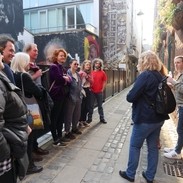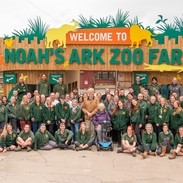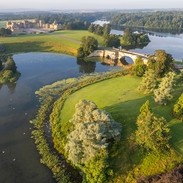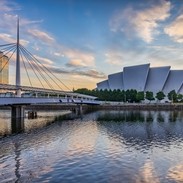Better Business case study: Mill on the Brue
Photo by: VisitBritain/Diensen Pamben
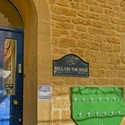
Better Business case study: Mill on the Brue
Mill on the Brue’s story is one of transformation – from a former resource-hungry golf course to a lean, green outdoor activity business. Starting with low cost, easy to implement initiatives and building from there – over the years, owners, the Rawlingson-Plant family have consistently reduced their energy, water and waste whilst building a successful and profitable business.
Business benefit: Reduce running costs
Aware of the financial cost and carbon footprint of its energy consumption, the business started with lower cost items (such as LED lighting throughout the centre) that it could action immediately, before focusing on larger investments. This included tapping into grant and other funding when available, to kickstart bigger initiatives – such as the solar thermal panels that now provide a third of the site’s power needs. After a payback period of five to eight years, this has now resulted in significant cost savings for the business.
“We’ve always had a consideration for the environment and the benefits have been certainly cost savings … We’re saving currently £6,500 a year on our electricity. It’s really good for business!”
Matt Rawlingson-Plant, Director
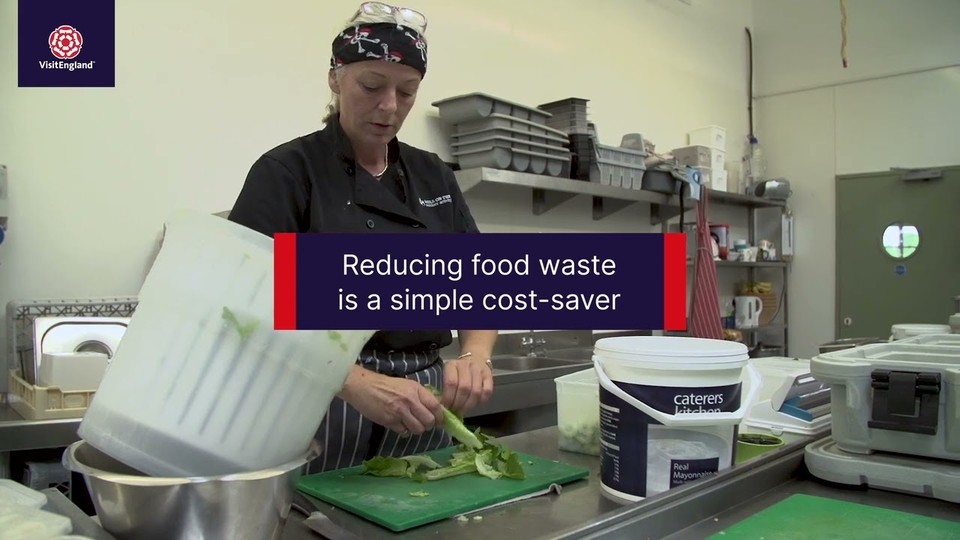
You must accept "Targeting" cookies from in order to watch this video, as YouTube automatically sets cookies of this type.
Buildings have also been renovated with long-term resource and cost-saving firmly in mind. For example, The Longhouse – built with help from a rural enterprise grant – was designed with environmental performance uppermost. Most of its heating is from geo-thermic heating (coils sunk two metres into the ground filled with diluted anti-freeze). Sheep’s wool and recycled newspaper insulation, the recycled rubber roof and high spec double glazing all help keep the heat in and costs down.
Simple devices such as lower flow shower heads, half flush buttons on toilets and push button taps also save both water and money. A 27,500 litre water tank under one of the flower beds harvests rainwater for flushing toilets and the 80 metres waterslide in the activity centre uses water pumped from and returned to the river.
“I think there’s more than just cost savings; if you are looking after the environment, you’re looking after your customers and you’re looking after the whole site, which is nurturing – then what a lovely place to work in, and what a lovely place to visit”.
Matt Rawlingson-Plant, Director
Photo by: VisitBritain/Diensen Pamben
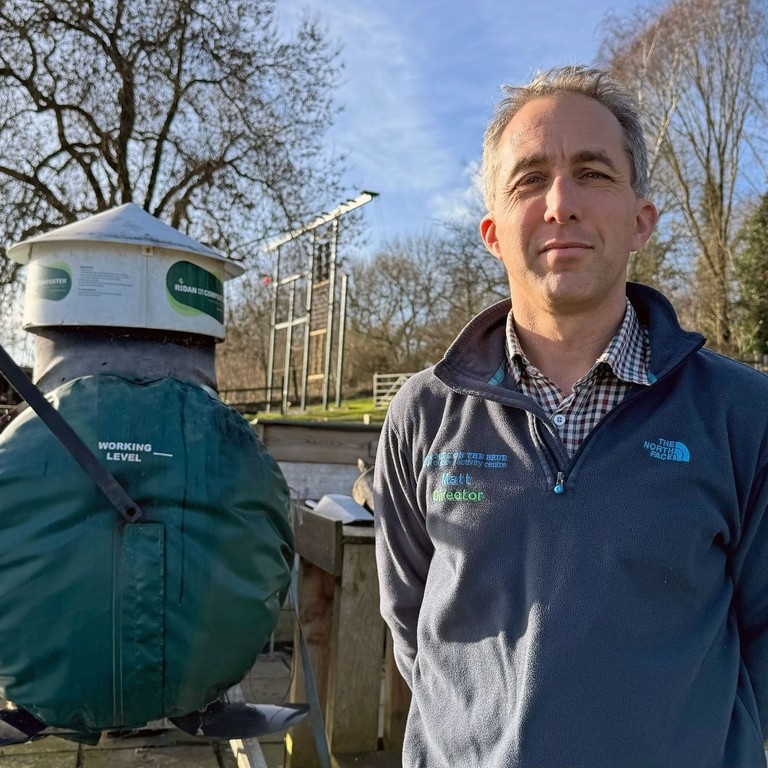
Business benefit: Cut food waste
Ten years ago, the business was producing a tonne of food waste every year. Recognising that this wasn’t just costly (both to buy and dispose of the food) but also contributed to its carbon emissions, the business took action.
Every residential group visiting Mill on the Brue now participates in an environmental education session, emphasising sustainable activities, garden to table practices and food waste reduction. The groups are encouraged to learn about food and waste facts and enthusiastically take part in competitions to become the ‘Zero Heroes’ of the week by producing the least food waste, and win prizes and a certificate for their school.
In a decade the food waste produced has been cut by 75%, saving £600 per year. This has been achieved through a combination of actions, including careful meal planning and purchasing, growing 85% of fruit and vegetables and cooking all meals on site, carefully weighing and tracking waste and controlling portion sizes – whilst of course all visitors are welcome to seconds!
Parents are delighted that their children return home having tried new foods, which in turn enhances the centre’s reputation with its customer markets. No food waste now goes to landfill but is all composted on site.
Find out more on Mill on the Brue.
Take the next steps to cut energy, waste and water
While there are plenty of innovative and tech solutions to help you manage resources, smart behaviour change techniques can also prompt your guests to make responsible choices. Here are some ideas to consider:
Encourage guests to skip a room clean: If you’re an accommodation provider, you can save water and electricity and reduce your environmental footprint by cutting cleaning frequency for rooms that are occupied for several days. For example, offer your guests to skip a room cleaning in exchange for a free dessert or drink.
Make it more likely your guests will choose the sustainable option: If you serve food, you can reduce your carbon footprint by encouraging guests to opt for more vegetarian/locally sourced and seasonal options. You can do this by presenting them high up in your menu, with attractive descriptions and visuals that make guests order simply because they’re eager to try it.
Reduce food waste by introducing a small portion option: Guests often leave food on their plate simply because it is too much for them, while others find the quantity just right. To reduce the likelihood of food ending up in the bin you can introduce a slightly smaller portion size that allows guests who eat less to finish everything.
Inspired by what you’ve seen? Check out the Regenerative Tourism Guide to learn more ways to stand out from the crowd, inspire staff, enhance visitor loyalty and make your business a force for good.
Previous case study
Next case study

